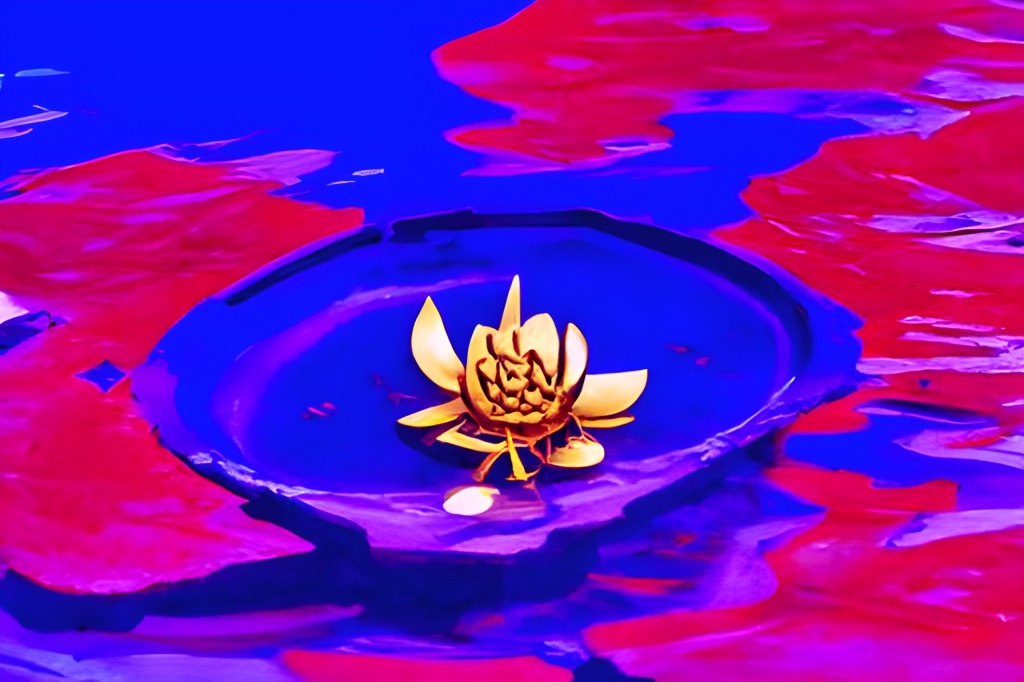From the Folklore of Uttarakhand
A certain king who had already lost his queen was deprived of his kingdom by another potentate. He retreated to the forest with his two sons and restored to selling firewood in the city for their sustenance. The younger brother finding it too tedious for him to convey wood for sale to the town left his work and went on his travels. He became the servant of a certain banker, assuming the attitude of a dumb man, but doing work like a skilful man.
The son of the banker, who knew the daughter of the king of the town, was to elope with her. They had consequently sent on ahead money, jewellery and precious stones laden on ponies. At the moment when the banker’s son was to start, the servant had him arrested and locked up by the banker, and with the permission of the banker he rode a pony and went off to seize the riches his son had sent away. Supposing that the banker’s son had set out, the princess also started. Both of them arrived in a certain town in the evening. When she saw the dumb man she was afraid of him, but having no one else to help her she made him signs to get lodging and provision, which the dumb man got ready for her to her satisfaction. They both slept together placing a dagger between them as a pledge of chastity.
After some days he sent the banker his prosperity and himself became a servant of the king of the city, getting a thousand rupees a day, with the agreement that he should do the work which could not be done by other servants of the king. The high pay he got made him an object of envy to the other servants of the king, and the king, being influenced by them, ordered the prince one day to bring him the flowers of parajiat, or the celestial flowers, an impossibility for any human being. After having obtained sentinels to guard his house during his absence, he immediately set out for the purpose. While on his travels he found a deserted town with only one damsel living in it. He made acquaintance with her and played chauparh with her for some time. In the evening she told him to go away from her house, for, if not, her father, a rakshasa (giant/evil spirit), would devour him. The prince said that he could not part with her for any amount of danger to his life. So she changed him into a fly.
When the rakshasa came he cried out, “Human scent, human scent.” The girl said all the people had already been eaten by him with the exception of herself. The next day when the fiend had gone hunting, she changed the prince again into a man. In this way they enjoyed each other’s company not for days only but for months.
One day the prince requested the woman to get either her father or himself killed. She said she would get rid of her father, the rakshasa. In the night when the demon came she complained to him and said, “O father, I am very anxious nowadays for you, since your own brother in disguise, I hear, has come here to kill you. How can you defend yourself against his attacks?” The rakshasa replied, “My dear daughter, do not be afraid for my life, I cannot be killed by any one in the world. For my soul is secured in the body of a beetle, which is again secure in the body of a parrot, which is kept within the iron-barred cage. This cage is secured again in the innermost room, there being six outer rooms duly padlocked, leading to it. The keys of all these locks are with me. The girl eagerly asked the rakshasa further, “You are likely to lose the keys; so will you kindly leave the keys in my care for my peace of mind?” The fiend acceded to her wish and gave her the keys. The girl again said, “Father, my eyes are always looking for your coming home; will you kindly tie a bell to your neck so that I may hear the ringing of it when you approach home, for my comfort; otherwise, my mind is always uneasy for your sake.” The rakshasa immediately complied with her request, by putting on a bell round his neck, and started to hunt human beings for his food.
The very next day as soon as she opened the first room, the rakshasa felt feverish; on unlocking the second room he had a high fever; finding that he had been deceived by his daughter, he ran towards home, but in the interval all the rooms were opened and the parrot and the beetle were killed. The rakshasa died.
The prince married the girl, who wished him to take her home, but the prince said, “My darling, I have to fulfill another promise to the king (whose servant I am) of bringing him the celestial flowers; so you must remain here comforted and guarded by servants, until I can produce the flowers before my king.” His wife said, “Very well, you are at liberty to do so, but go to the remotest jungles which are generally inhabited by ascetics, who alone are able to give you instructions as to how and where the flowers are to be obtained.” So the prince went to the jungles.
He met with a fakir to whom he represented his need. The ascetic told him that the flowers were either to be had in the heavens or in the world under the earth. He advised him to continue his journey onward. The prince did so and came across another ascetic, who advised him also to go on to gain his purpose. Then he met with a third dervish who told him that on a certain night all the heavenly gods and yakshas (fairies/elves) descend at a certain place on the earth, where they dance to the tune of a flute during the night, and whenever the flute is blown the yakshas dance and celestial flowers fall down on them. They disappear next morning. So you must go there and take courage and use the opportunity to bring in as many flowers as you like.
The prince accordingly got to the place on that night and saw the show. The celestial beings disappeared as soon as the day broke and left the flute there. The prince, instead of bringing the flowers he wanted, took up the flute (the chief source of the spectacle and phenomenon, and also the flowers which the tune of the flute produced), and brought it to the third or the last fakir, and produced the entertainment afresh. The ascetic expressed a desire to receive the wonderful flute from the prince, who agreed to part with it on receiving in return the self-striking club, and the self-binding rope from the fakir. Both agreed to the conditions.
So the prince returned, after having given the flute to the dervish. While on his way he commanded the club and the rope to beat and bind the fakir, and to take back his flute. They did it. He arrived at the hut of the second dervish and showed him the flute and its manner of working. The latter was so enchanted with the flute that he asked for it in exchange for the self-cooking vessel and self-distributing provision spoon which he had. The prince having bartered his flute for the vessel and the spoon, resumed his way.
Again he ordered the club and the rope to bring his flute back, the next moment he saw his own order complied with, and the flute placed before him. Then he started and met with the first dervish and showed him the flute and related the way in which he had obtained it. This fakir also wanted it in return for the self-flying bed he had. The prince readily agreed to the bargain and gave him the flute. As soon as he had left the place, mounting the self-flying bed he ordered his club and rope to get his flute back, and his command was instantly obeyed.
Thence he went to the daughter of the rakshasa, and placing her and himself together with all the riches of the deserted town on the flying bed, reached the destination of the king, who had sent him for the celestial flowers. There he arranged to show the display one night. No sooner had he tuned the flute than the yakshas appeared, and danced so bewitchingly that the celestial flowers poured down on them in the presence of the king and his courtiers. The king and his retinue were so fascinated with the extraordinary and amazing scene that the whole assembly heartily thanked and congratulated him on his supernatural achievement of his purpose. The flowers thus produced were collected by the order of the king. After this the prince invited the king and his courtiers to his own lodging, told them that he was a prince, and that he had taken service on account of his poverty. After having feasted them he begged leave from the king to return to his own country.
Next day he rode the flying bed with the two maidens and his riches, and arrived in his own country. After having conquered the foreign king with the club and rope, he put his elder brother on the throne; himself serving as a minister to him. He married the daughter of the king he had brought with him, to his elder brother, the king, and he himself married the daughter of the rakshasa who was trained in a hundred and eight arts.
Source:
Himalayan Folklore: Kumaon and West Nepal, E.S. Oakley and Tara Dutt Gairola, 1935





